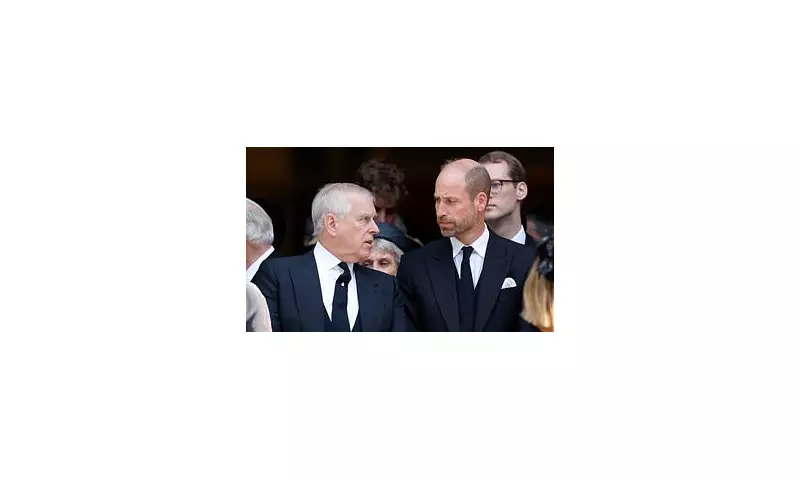
In a dramatic display of shifting royal power dynamics, Prince William has emerged as the driving force behind Prince Andrew's eventual departure from Royal Lodge, the sprawling Windsor residence the Duke of York has called home for over two decades.
The Royal Standoff Comes to a Head
Behind the polished gates of Royal Lodge, a tense battle of wills played out between the future King and his disgraced uncle. Sources close to the palace reveal that Prince William took a firm stance, insisting that Andrew could no longer maintain the 30-room mansion following the settlement of the Virginia Giuffre sexual assault lawsuit.
The pressure campaign was both strategic and relentless, with William making it clear that Andrew's continued occupation of the luxury property was becoming untenable for the monarchy's reputation.
A Residence Steeped in Royal History
Royal Lodge holds significant sentimental value for the Duke of York, who has poured millions into renovations and considered it his permanent home. The Grade II-listed property, set within Windsor Great Park, has been Andrew's sanctuary since 2004, when he signed a 75-year lease with the Crown Estate.
"This wasn't just about real estate—it was about identity," a royal insider explained. "Andrew saw Royal Lodge as his domain, his piece of the royal landscape. Letting go represented something much deeper than simply moving houses."
William's Growing Influence in Royal Affairs
The future King's intervention signals his increasing involvement in delicate family matters that directly impact the Crown's stability. While King Charles maintained a more diplomatic approach, William operated with the determination of someone preparing to inherit an institution he must protect at all costs.
The resolution involved complex negotiations about Andrew's future housing arrangements, with Frogmore Cottage emerging as a potential downsized residence—though even this came with its own complications given the property's previous association with Prince Harry and Meghan Markle.
The Financial Reality Bites
Beyond the personal dynamics, practical considerations played a crucial role. The estimated £2 million required for necessary repairs and the £400,000 annual running costs became impossible for Andrew to justify given his reduced royal role and public standing.
- Massive maintenance backlog requiring millions in repairs
- Sky-high annual operating costs exceeding £400,000
- Security concerns for a controversial figure
- Public perception of privilege amid cost-of-living crisis
William's firm position reflected not only family politics but the harsh financial realities facing a modern monarchy operating under increased public scrutiny.
A New Era of Royal Accountability
This episode marks a significant departure from the traditional handling of royal scandals. Where previous generations might have allowed troubled members to retreat behind palace walls, William represents a new approach—one where personal comfort must be balanced against institutional survival.
The message is clear: as the monarchy evolves, so too must its members, and no one—not even the Queen's favorite son—is above the institution's needs.
The resolution of the Royal Lodge situation demonstrates Prince William's growing confidence in shaping the monarchy's future, establishing a precedent that will likely define his eventual reign.





